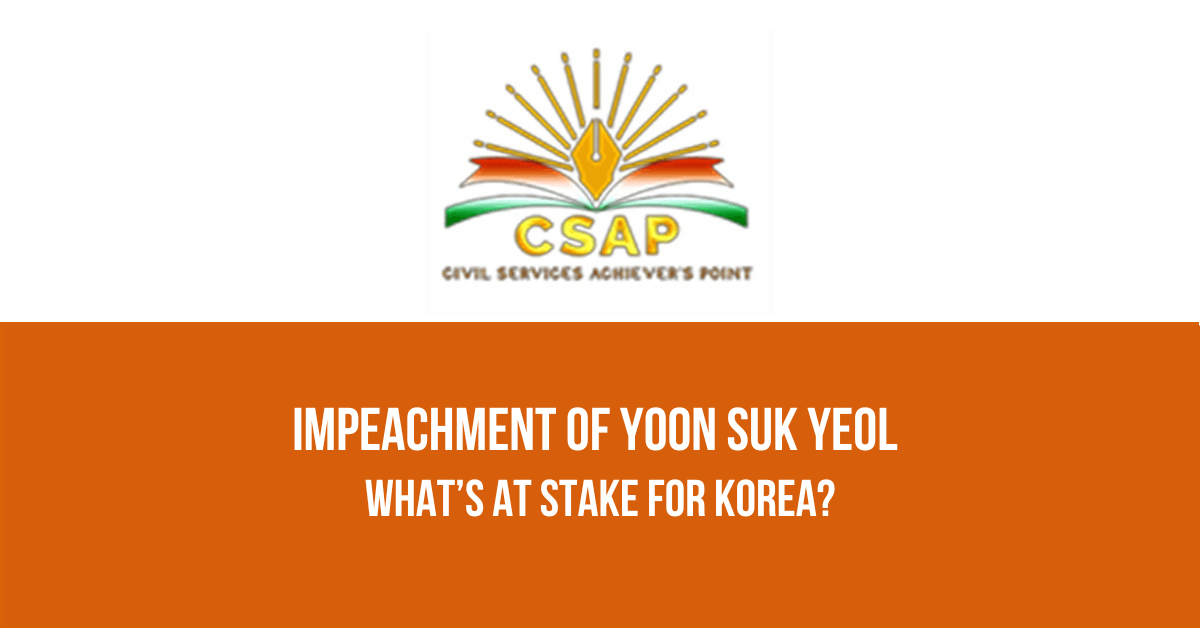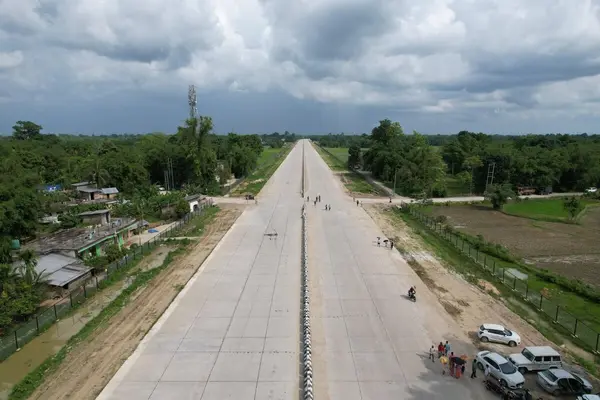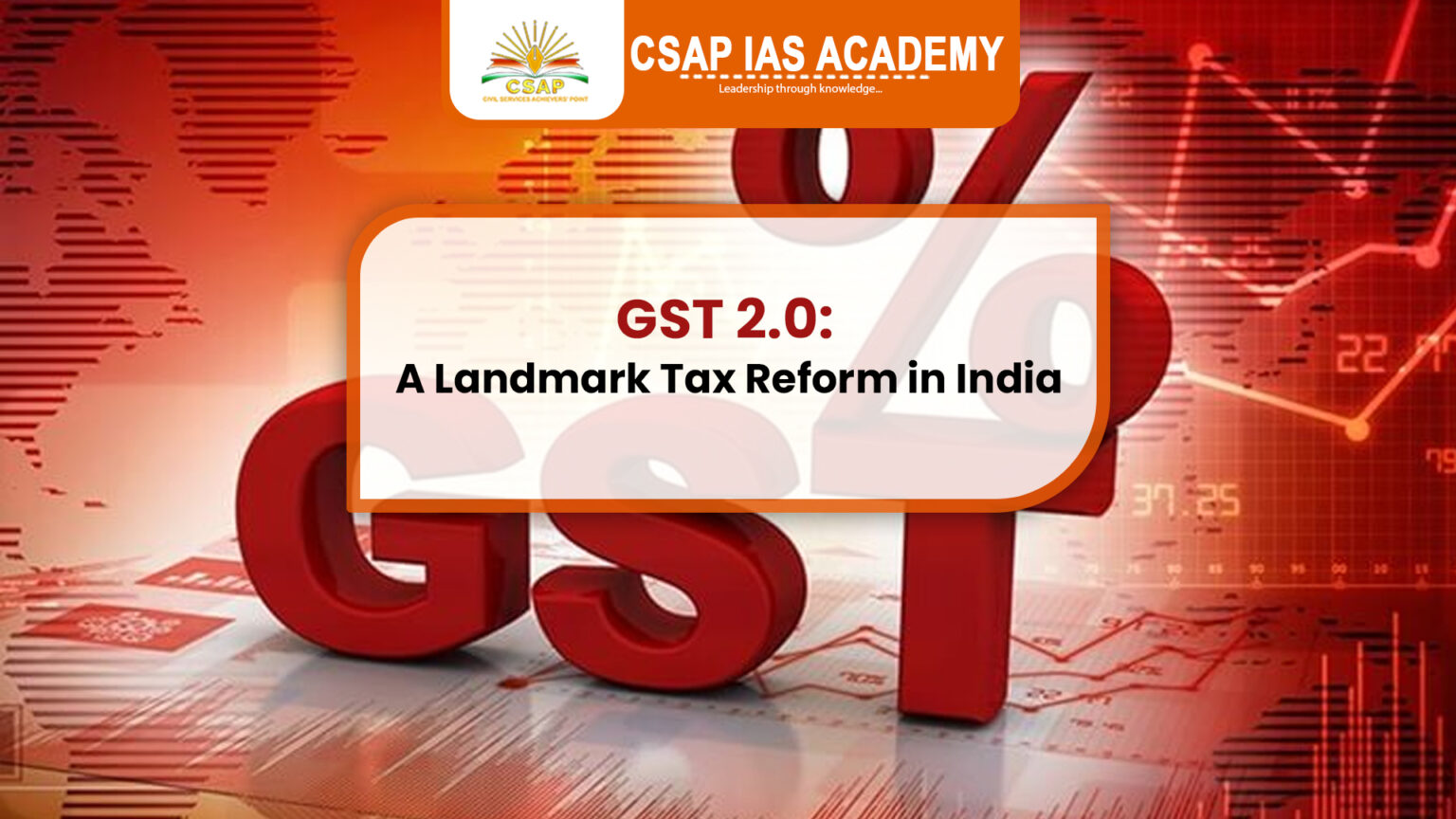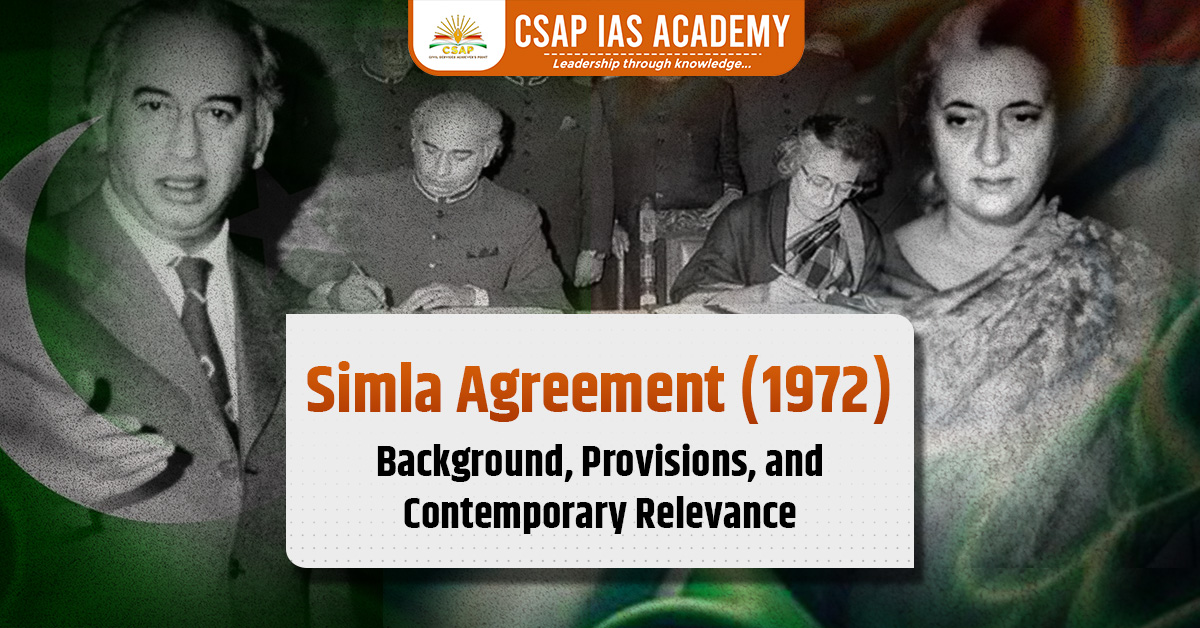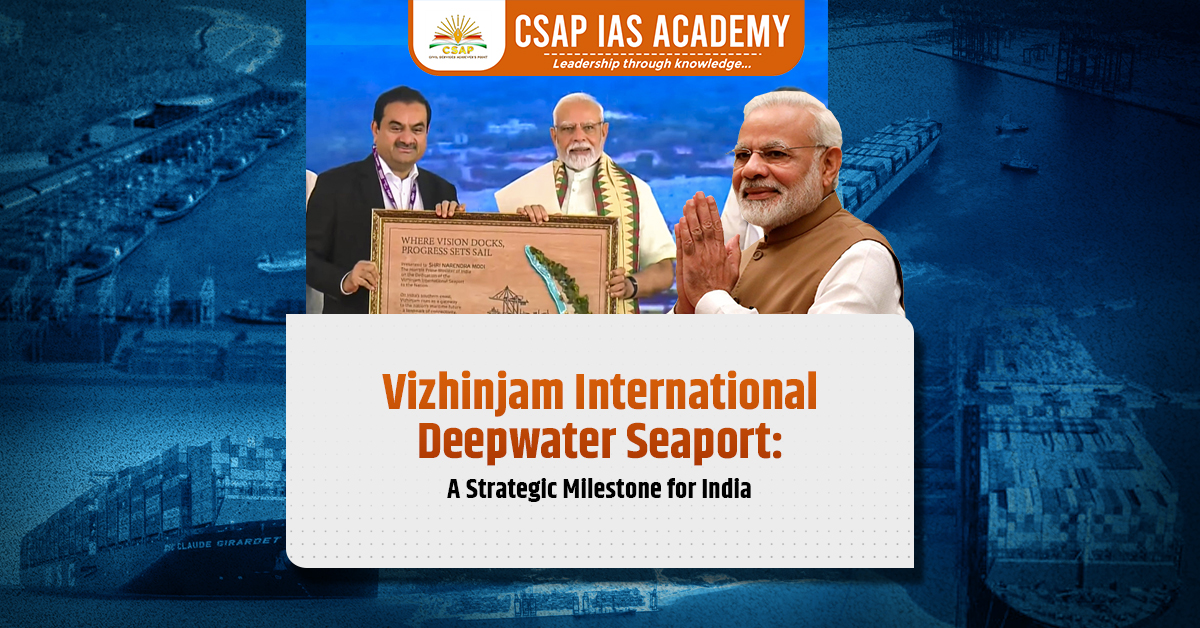South Korea has been thrust into the global spotlight with the impeachment motion against President Yoon Suk Yeol. This dramatic turn of events has sparked widespread debate, raising questions about its political, social, and economic implications. In this blog, we delve into the reasons behind the impeachment proceedings, explore their potential ramifications on South Korea’s democracy and international relations, and highlight the broader significance of this development in the global political landscape. Join us as we unpack this pivotal moment in South Korea’s history.
Why is Impeachment of Yoon Suk Yeol in News?
South Korea’s impeached President Yoon Suk Yeol appeared at the Constitutional Court for the first time to defend his martial law declaration amidst political turmoil. The court will decide whether to uphold his impeachment and remove him from office.
Key Highlights of Impeachment of Yoon Suk Yeol
Background
- Martial Law Declaration: On December 3, 2024, Yoon declared martial law, citing election fraud, but it was revoked by lawmakers after just six hours.
- Impeachment and Arrest: Following the martial law declaration, Yoon was impeached by parliament and arrested on insurrection charges, becoming the first sitting South Korean president to face such charges.
Constitutional Court Proceedings
- Hearing Details: The impeachment trial began last week, with Yoon attending for the first time. His legal team has requested 24 witnesses, including election officials, to justify his actions.
- Potential Outcomes: If the court upholds his impeachment, Yoon will lose the presidency, and new elections must be held within 60 days.
- Legal Arguments: Yoon claims his actions were necessary to safeguard democracy, while parliament-appointed prosecutors argue for his prompt removal to restore the rule of law.
Public Reactions
- Protests: Both pro- and anti-Yoon protesters have mobilized, with clashes occurring outside court hearings.
- Polarized Opinions: Supporters view him as a protector of democracy, while the opposition sees his actions as unconstitutional.
Implications of the Impeachment
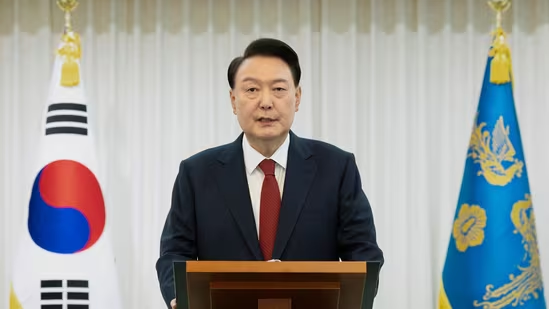
- Legal and Constitutional Order
- The case underscores the strength of South Korea’s judiciary in addressing high-profile constitutional crises.
- Yoon’s refusal to cooperate with the Corruption Investigation Office (CIO) on the criminal probe into his martial law declaration has drawn criticism.
- Political Landscape:
- The opposition Democratic Party, which controls the majority in parliament, has celebrated Yoon’s arrest as a step toward restoring constitutional order.
- The impeachment reflects South Korea’s evolving political accountability mechanisms.
- Public Sentiment
- Yoon’s court appearances aim to galvanize public opinion and mobilize his supporters.
- However, his non-cooperation with the criminal investigation risks undermining his case in both public and judicial perspectives.
- Judicial Independence
- The Constitutional Court’s decision will be critical in reinforcing the rule of law and ensuring that political leaders are held accountable within the legal framework.
Significance of the Impeachment
- Rule of Law:
- The impeachment trial reflects the checks and balances inherent in a democratic system.
- It serves as a precedent for addressing allegations of unconstitutional actions by elected leaders.
- Political Stability:
- The outcome will significantly impact South Korea’s political stability and public trust in democratic institutions.
- A swift resolution is essential to prevent prolonged political uncertainty.
- Global Perspective:
- South Korea’s handling of this crisis showcases the resilience of its democratic processes.
- It highlights the importance of judicial independence in maintaining accountability in governance.
Conclusion
The impeachment of President Yoon Suk Yeol marks a pivotal moment in South Korea’s political history. The Constitutional Court’s ruling will not only determine Yoon’s future but also reinforce the strength of democratic institutions in addressing constitutional violations. This case underscores the importance of adhering to the rule of law to uphold the principles of democracy.
Read: Rat-Hole Mining
Download App:

